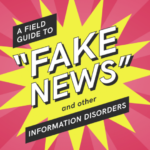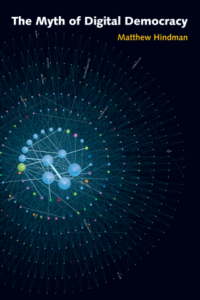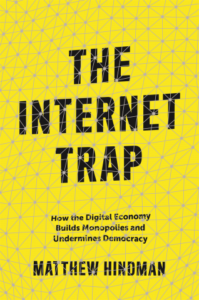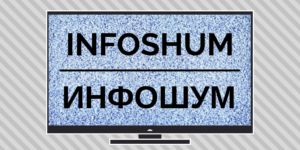Facebook is reportedly delighted with the performance of its anti-disinformation “war room” during Brazil’s presidential election.
But despite Facebook’s stronger and more organized coordination of its effort to improve election-related content, Latin America’s largest country was still overrun with misinformation, much of it distributed via Facebook services, Bloomberg reports:

Wilson Center
False information that was thwarted on Facebook’s main site by the company’s network of fact-checkers was still able to thrive on its WhatsApp messaging app, which is encrypted and virtually impossible to monitor. Pablo Ortellado, a professor of public policy at the University of Sao Paulo who has studied fake news, said Facebook has made good strides, but isn’t addressing the full scale of the problem. And he thinks the company’s efforts still won’t be enough to tame WhatsApp, where Facebook doesn’t have visibility into exactly what’s being shared.
“All the malicious stuff of the campaigns went through WhatsApp, that’s the problem,” he said in an interview. “Really, that was one of the disasters of this election.”
 Samidh Chakrabarti, Facebook’s director of elections and head of civic engagement, told CNN that the war room was “really the culmination of two years of massive investments we’ve made both in people and technology to ensure that our platforms are safe and secure for elections. So it builds upon work that we’ve done to crack down on fake accounts, on combating the spread of fake news on our platforms.”
Samidh Chakrabarti, Facebook’s director of elections and head of civic engagement, told CNN that the war room was “really the culmination of two years of massive investments we’ve made both in people and technology to ensure that our platforms are safe and secure for elections. So it builds upon work that we’ve done to crack down on fake accounts, on combating the spread of fake news on our platforms.”
The marketplace of ideas already suffers from truth decay as our networked information environment interacts in toxic ways with our cognitive biases, according to analysts Bobby Chesney and Danielle Keats Citron. Deep fakes will exacerbate this problem significantly. Individuals and businesses will face novel forms of exploitation, intimidation, and personal sabotage. The risks to our democracy and to national security are profound, they write in a new report for the Social Science Research Network.
Their report – a remarkable piece of scholarship – examines solutions, too, says Barnard College professor Jennifer Finney Boylan. One approach — “immutable life log technology” —would be, essentially, a 24-hour alibi service, in which one’s every word and action is captured digitally — thus making it possible to disprove fakes when they arise, she writes for The New York Times.
 “Deepfake” videos look so authentic that it is almost impossible to discern that they are not real, Sue Halpern writes for The New Republic. “This is super dangerous going into 2020,” said analyst Zac Moffatt. “Our ability to process information lags behind the ability of technology to make something believable when it’s not. I just don’t think we’re ready for that.”
“Deepfake” videos look so authentic that it is almost impossible to discern that they are not real, Sue Halpern writes for The New Republic. “This is super dangerous going into 2020,” said analyst Zac Moffatt. “Our ability to process information lags behind the ability of technology to make something believable when it’s not. I just don’t think we’re ready for that.”
If there is any good news in all of this, it is that technology is also being used to expand the electorate and extend the franchise, Halpern adds. Democracy Works, a Brooklyn-based nonprofit, for example, has partnered with Facebook on a massive effort to register new voters.
We have yet to come to terms with the staggering degree of control the major platforms exercise over political speech and what it means for democracy, argues Robert Diab, Associate Professor at Thompson Rivers University. In the 2008 book Here Comes Everybody, Clay Shirky saw the new terrain fostering a “mass amateurization” of cultural and political engagement, he writes for The Conversation:
 In the recently published The Internet Trap: How the Digital Economy Builds Monopolies and Undermines Democracy author and professor Matthew Hindman’s findings unsettle an earlier picture of the web as a tool for broader civic engagement and a healthier democracy — a view prominently associated with Harvard’s Yochai Benkler. In his 2006 book The Wealth of Networks, Benkler noted that in the industrial age, one could only reach a wider audience by making “ever-larger investments in physical capital” — for example in telegraphs, presses, radio and TV transmitters — ensuring a corporate monopoly over public speech. Yet, as Hindman wrote in 2008 in The Myth of Digital Democracy, the blogosphere did not result in a great dispersal of attention or a big increase in audience diversity.
In the recently published The Internet Trap: How the Digital Economy Builds Monopolies and Undermines Democracy author and professor Matthew Hindman’s findings unsettle an earlier picture of the web as a tool for broader civic engagement and a healthier democracy — a view prominently associated with Harvard’s Yochai Benkler. In his 2006 book The Wealth of Networks, Benkler noted that in the industrial age, one could only reach a wider audience by making “ever-larger investments in physical capital” — for example in telegraphs, presses, radio and TV transmitters — ensuring a corporate monopoly over public speech. Yet, as Hindman wrote in 2008 in The Myth of Digital Democracy, the blogosphere did not result in a great dispersal of attention or a big increase in audience diversity.
 As British historian Mark Mazower notes, the near-monopoly over attention online by Facebook and other large sites threatens democracy by constraining conversation, Diab adds. The large portals encourage “instant gratification, when democracy presupposes a capacity for frustration and patience.” As Mazower writes: “Populism is the natural condition of democratic politics in the age of Twitter.”
As British historian Mark Mazower notes, the near-monopoly over attention online by Facebook and other large sites threatens democracy by constraining conversation, Diab adds. The large portals encourage “instant gratification, when democracy presupposes a capacity for frustration and patience.” As Mazower writes: “Populism is the natural condition of democratic politics in the age of Twitter.”
There is truth and there is post-truth. There is information and there is disinformation. But in the grey zone between these categories, there is infoshum – Russian for “info-noise”, EU East StratCom Task Force reports.
 For the past several weeks, the Kremlin’s channels have focused mainly on spreading disinformation about Western countries: trying to bury the facts about the Skripal poisoning under distractions and fakes; or inventing other chemical and biological attacks, like here, or here. But this past week, Russia’s disinformation campaign has re-focused on its number one target: Ukraine, it adds.
For the past several weeks, the Kremlin’s channels have focused mainly on spreading disinformation about Western countries: trying to bury the facts about the Skripal poisoning under distractions and fakes; or inventing other chemical and biological attacks, like here, or here. But this past week, Russia’s disinformation campaign has re-focused on its number one target: Ukraine, it adds.







